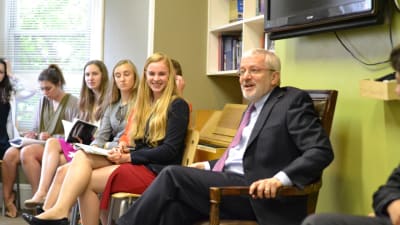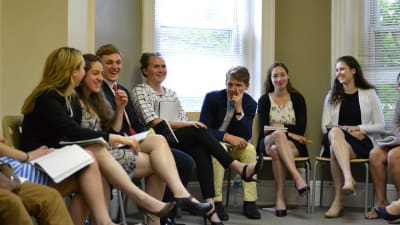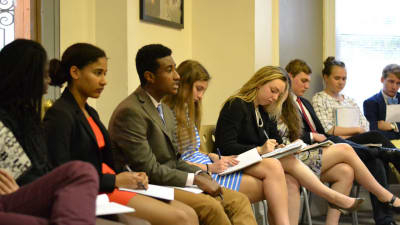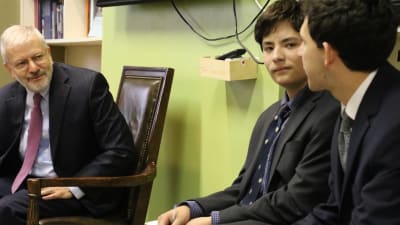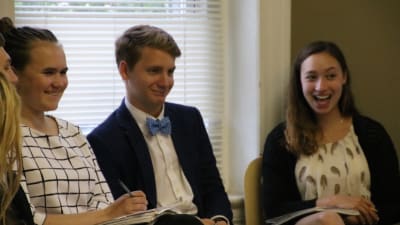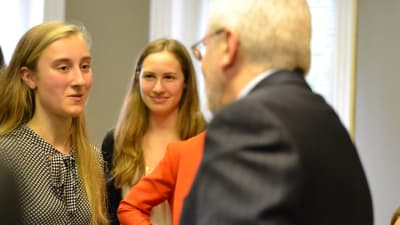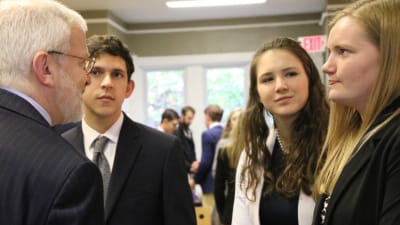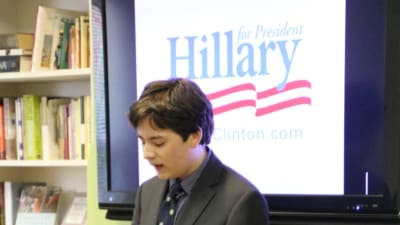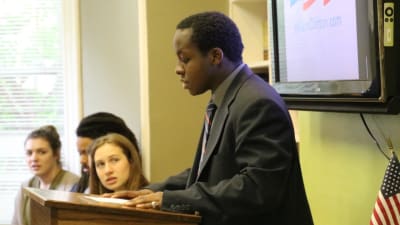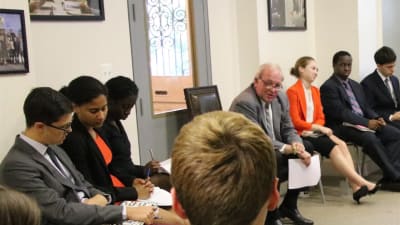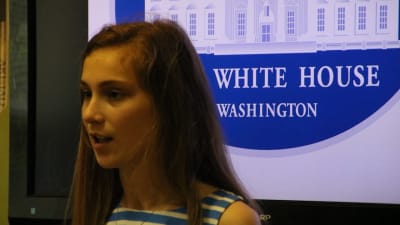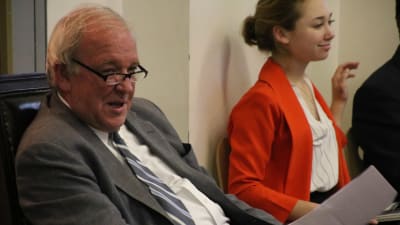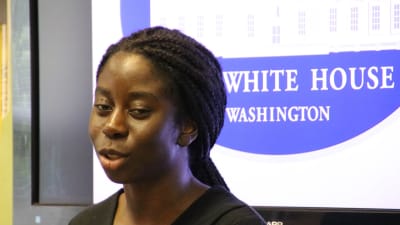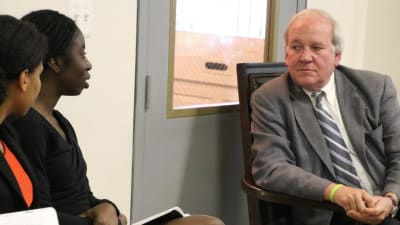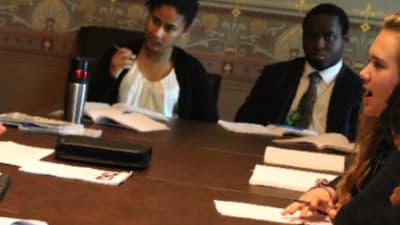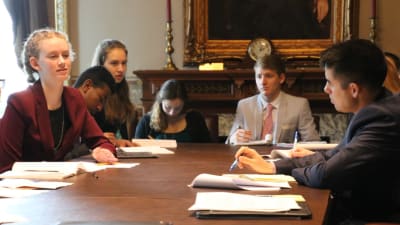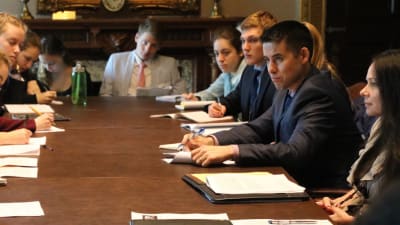One week, four White House veterans, and a crisis simulation
We ended our final academic week with White House-infused gusto! Our students also had the chance to showcase much of the knowledge and many of the skills they have gained this spring.
Everything in the week pushed the students toward an intense cumulative SEGL tradition: a four-hour crisis simulation in which each student played a role in the Executive Branch.
To begin, on Monday the students heard a basic introduction to international relations: first, an overview of social contract theory (Hobbes, Locke, and Rousseau), and second, an overview of realism, liberalism, and other key IR theories. The students asked themselves questions like “why do governments form in the first place, and what does that have to do with how governments ought to interact together?” “what is the proper role (if any) of the United Nations?” and “is it right for a country to risk its own citizens’ lives in order to promote human rights?” Several case studies from earlier this summer (perhaps most notably our Rwanda case study) echoed through the conversation.
On Tuesday, two leading White House veterans visited us to deliver memorable master classes.
First, former White House Chief of Staff Josh Bolten, a perennial SEGL favorite, returned to discuss his experiences with crisis management. Bolten, Vice President Dick Cheney, and a small number of others were effectively in charge of the White House on September 11, 2001 while President Bush and then-Chief of Staff Andrew Card were in Florida and then on Air Force One. Bolten was also Chief of Staff during the financial crisis and the Iraq surge. However, when he walked in, he learned that the students had been debating HB2, the controversial North Carolina “bathroom bill.” As a result, and because he knows some of the major players in the controversy, Bolten shifted course and led a thoughtful, impassioned discussion on the topic. Bolten’s soft-spoken anecdotes and earnest exhortations inspired our students to deep reflection; his gentle Socratic style also helped demonstrate how far many of our students have come since the opening weeks of the term.
That afternoon, we welcomed former White House Press Secretary Mike McCurry (coincidentally, a Princeton classmate of Bolten’s) to the Academic building. McCurry served for nearly four years as Bill Clinton’s Press Secretary and was at the podium when the Monica Lewinsky scandal broke (“I’m not going to parse the statement” was his most famous line). In small groups, our students researched real-life issues, wrote brief statements about them, and elected one member to serve as a mock White House Press Secretary. Each Secretary then read her or his statement and then took nearly ten minutes of grilling from McCurry, who acted as the White House press corps. His questions were incisive, aggressive, and 100% real. Each Secretary got the opportunity to think on her or his feet (a key SEGL skill) in front of the person one leading historian has called the best press secretary since the 1950s.
On Thursday we visited the White House for a second time this semester. This time, we met with National Security Council Director of Counterterrorism Col. Robert Powell and Special Assistant to the President and Senior Director for Counterterrorism Jen Easterly. The topic? A final presentation of our capstone policy document and a discussion of the challenges of working on the NSC. Col. Powell also spoke eloquently about an ethical dilemma from his time in the Air Force. The discussion was earnest and exciting, with the experts staying past their allotted time to engage the students.
On Friday, the students put their crisis management knowledge to work in the crisis simulation. Over the course of the simulation, the President and her (yes, her!) team learned important information about a series of international and domestic issues that required tough decision making under time pressure and also public relations skills.
Our faculty played members of the domestic and international community in videoconferences, videos, leaked “intelligence,” and in person (at the height of the action, the President was required to spend ten minutes reading a bedtime story to her child…). We won’t spoil the details for future terms; suffice to say, lives were lost, lives were saved, ethical decisions were bandied about, and the President’s final press conference was eloquent and impressive (perhaps in part because of McCurry’s mentorship earlier in the week). For many reasons, it was a fitting final Ethics and Leadership exercise for a terrific group of students.
